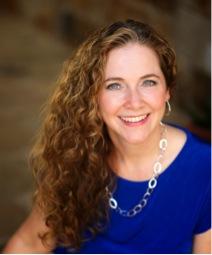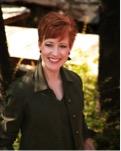Archive for July 2020
Why Emotional Self-Awareness Is Difficult For Some People To Attain
How well do you know yourself?
Who are the people you know really well in your life? Your spouse? Your parents? Your best friend? As you contemplate your most intimate, secret-keeping, mind-reading relationships, do you think of the relationship you have with yourself? Chances are you don’t. The level of emotional self-awareness necessary to truly know, let alone love, yourself isn’t easy to achieve.
Yet, it’s so easy, isn’t it, to have everyone else in your life “figured out.” You predict their thoughts and behaviors. You know why they do what they do. You’ve just been around them so long you can read them like a book.
You may even be “that person” all your friends turn to for a listening ear, comforting shoulder, and sound wisdom. You know what they’re feeling and why. Some people are just that “in touch.”
But how well do you have yourself figured out? Do you have a grasp of why you feel what you feel and do what you do? Can you read yourself the way you (think) you can read others?
Emotional self-awareness is the foundational element of emotional intelligence, which is a cluster of abilities that makes emotional regulation possible. But self-awareness is perhaps the most difficult element to develop.
Self-awareness is the ability to see yourself clearly and objectively. And learning how to be more self-aware starts with a u-turn that drives your focus inward.
And therein lies the rub.
For as much as we live in a me-me-me culture, most people back away from the real “me work” that leads to emotional self-awareness.
Duval and Wicklund’s Self-Awareness Theory is based on the idea that you are not your thoughts, but are a separate entity that observes your thoughts. You “self-evaluate” by thinking about whether your thoughts, feelings, and actions align with your values or “standards.”
By “comparing against your standards of correctness,” you know if you are in alignment with your standards or need to make changes.
The more self-aware a person is, the more likely that person is to make behavioral adjustments when necessary. Her/his goal is to reduce the discrepancy between standards (morals, ethics, performance goals) and thoughts/words/behaviors.
Simply put, the discrepancy between the standards you set for yourself and your thoughts and choices causes discomfort as self-awareness increases. You want to stay in alignment, and straying from that standard knocks you off-balance.
The catch-22 is that a person with low emotional self-awareness is less likely to make behavioral adjustments and more likely to avoid future introspection.
And that is precisely the person who most needs to become self-aware. Ironically, it’s as if self-awareness drives self-awareness. It’s like a positive feedback loop – the more you have, the more you develop it.
Likewise, the opposite is true for those who aren’t self-aware. The bigger the discrepancy between their standards and choices, the less likely they are to step into the work of correcting themselves. They’re more likely to let their standards erode (thereby decreasing the discrepancy) or turn a blind eye to the arduous task of self-evaluation.
The tricky thing about emotional self-awareness is that most of us are on autopilot and don’t even know it. We lock in our thoughts, beliefs, habits, and behaviors early in life. And that kind of hardwiring is tough to rewire.
Think about the last time you found yourself in a conversation in which someone violated the cardinal rule of not talking politics. How much real listening went on? And how much lashing out with scripted platforms from opposite sides went on?
Interactions like that fuel the posture of reluctance to work toward self-awareness. People speak without thinking. They don’t answer questions asked because they’re on autopilot. They probably can’t even give an honest, reflective answer as to why they believe the way they do.
Their goal has nothing to do with learning, growing, or doing any kind of emotional rearranging. That would be too much work and might be a display of weakness or lack of assuredness. And they have no sense of what their bodies are feeling, so they can’t connect their feelings to their behavior.
All the potential for being fully present in the moment is therefore lost, as is the potential for growth. And the qualities that define authentic relationships are left buried in the vault that can be opened only by taking the risk of entering it.
Developing emotional self-awareness starts with a commitment to doing the tough inner work.
And that means dealing with the distractions that we all masterfully use to keep us out of emotional pain.
Let that sink in for a minute. Think about the multitude of detours you take in a day to avoid having “to deal.” Don’t want to tackle that report? Play a video game. Don’t want to think about that uncomfortable phone call with your father? Head to Facebook. Eat something. Turn on the TV. Sleep. Drink. Repaint the living room. Anything. Just don’t go there.
And yet, it’s only through stillness that can be fostered by mindfulness and meditation that clarity is possible. All those distractions, all those unexamined patterns, all those elephants allowed to stay in the room, blocking the truth that could be life-changing.
Once you recognize the ways you are blocking access to your own emotional self-awareness, you can get in touch with your feelings. Yes, this is the tough part. The feeling part. The crying part. The rude-awakening part. The “finding yourself” part.
The pivotal part.
The part that reveals the messages of your heart so that your head can do its own reality check and get off autopilot.
If you can brave this part, you can build your way back out – this time with a sound foundation. You can look at yourself with honesty and not fear what looks back because you know you will bring yourself into alignment. You don’t need to read people’s minds or predict your own future thoughts because you will be grounded in the present.
Now is the moment. Now is where the feelings are.
And now is where you are – self-aware and self-accepted. Now you are capable of truly extending empathy to others because you have learned to love what you once feared in yourself.
I’m Dr. Karen Finn and I’m a life coach. Schedule a 30-minute private consultation for support in discovering how developing greater self-awareness can help you find happiness.
Looking for more information about how you can have a happier life? You’ll find what you’re looking for in How To Be More Self-Aware.
Another Way Divorce Sucks: It Can Impact Your Long-term Health!
No matter how you look at it divorce sucks!…at least in the short term. But more and more research is being done on how divorce impacts former spouses. The results are sobering.
Karen and her guest Dr. Jennifer Ridley, a functional medicine doctor, discuss the long-term health implications of divorce and what you can do to decrease your chances of becoming a statistic.
You can learn more about Dr. Ridley and her practice at livewelldfw.com.
WAIT! Listen to This Before You Hire Your Divorce Attorney…
In this episode, Karen speaks with Lisa Zahn, a board-certified family law attorney in North Texas. Karen and Lisa discuss how to make selecting and working with a divorce lawyer less intimidating and less expensive.
You can learn more about Lisa at lisazahn.com.
Here’s more information about selecting and interviewing a divorce attorney.
What You Need To Know About Credit And Divorce
In this episode, Karen speaks with Paul Hendricks, a consumer finance expert with Build My Scores Credit Services. Karen and Paul discuss how the division of debt in divorce can impact you years after you divorce is final and how not only newly divorced but anyone can both establish and improve their credit.
You can learn more about the work Paul does at buildmyscores.com or reach him directly at 214-505-7746.
Feeling Stressed? Getting a Prescription Isn’t Your Only Option
In this episode, Karen speaks with chiropractor Dr. Melissa Dunlap. Karen and Dr. Dunlap discuss a common problem in divorce – feeling overwhelmed with stress. They talk about not only the sources of stress, but some easy ways to decrease your stress when going through divorce (and any other time you just need a little stress relief).
You can learn more about the work Dr. Dunlap does at aspire-health.com or reach her office at 214-234-0000.
How to Get a Fair Divorce Settlement
In this episode, Karen speaks with Travis Federick a Chartered Retirement Planning Counselor and Certified Divorce Financial Analyst (CDFA) with Ameriprise Financial.
They discuss 3 keys to getting a fair divorce:
- What makes a divorce fair financially?
- What’s the best strategy for getting a fair settlement?
- What role does a CDFA play in making sure your divorce settlement is fair?
You can learn more about Travis and his services by calling him at 817-722-2464.
It Really Is That Complicated – One Man’s Truth About Male And Female Relationships
In this episode, Dr. Charles Rawlings shares the story behind his book It Really Is That Complicated, a bit about his post-divorce dating experiences, along with some of his philosophies about dating and life.
You can learn more about Dr. Charles Rawlings and his book at www.itreallyisthatcomplicatedbook.com.
How To De-Frump Yourself
Feeling less than gorgeous since your divorce? In this episode, Karen talks with image consultant Kay Smith about what you need to do to de-frump yourself. Their lively conversation about hairstyle, makeup and apparel tips will help you to feel better about improving your appearance. AND they share the secrets of why de-frumping yourself after divorce is so important.
You can learn more about Kay Smith and her innovative Energy Dressing at www.energydressing.com.
Don’t Let Your Divorce Haunt Your Loved Ones After Your Death
After you get divorced, one of the last things you probably want to do is to walk into another attorney’s office to take care of your estate planning. Yet that’s probably one of the things you need to prioritize on your to-do list.
In this episode of Functional Divorce, Karen and her guest Ashley McMillan discuss the ins and outs of estate planning after divorce and what you need to do to make sure you and your loved ones aren’t haunted by your divorce.
You can learn more about Ashley McMillan and The McMillan Firm at www.mcmillanpc.com.
Co-parents, Put An End To Your Divorce War – For Your Kids’ Sake
Residual hurt and anger are pretty normal after divorce. The problem is that the only casualties of a divorce war are the kids. In this episode of Functional Divorce, Karen and her guest Karen Becker discuss the effects of poor co-parenting on kids and ways to stop divorce war.
You can learn more about Karen Becker and her work at www.karenbeckerlifecoach.com.










